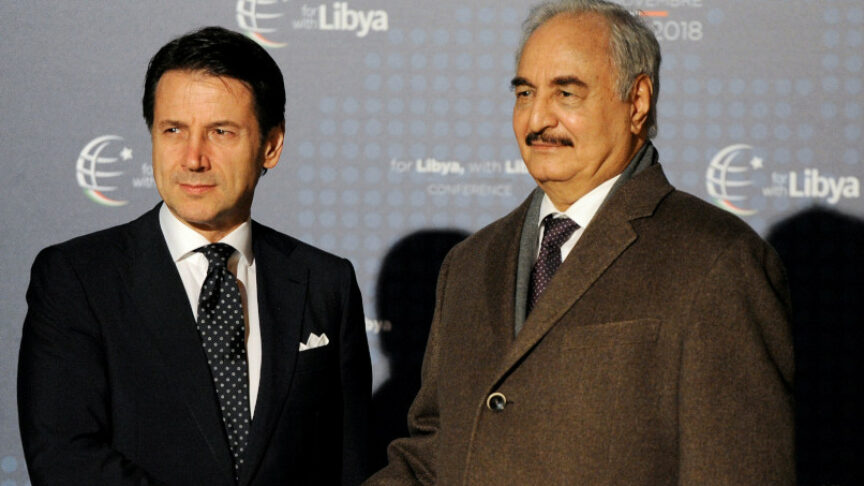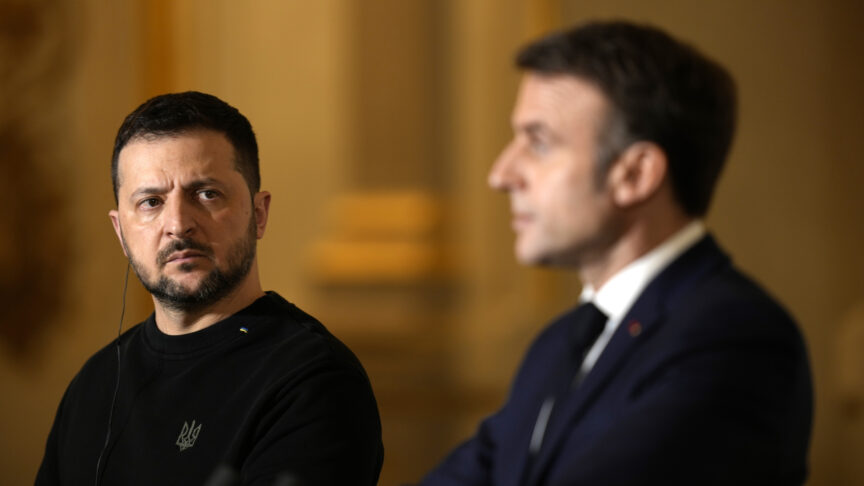Italy’s chance in Libya
The tide of Libya’s war is turning against renegade general Khalifa Haftar. Italy should seize this opportunity to lead European countries to a harmonised Libya policy.
Italy has undoubtedly played a central role in the twists and turns of Libya’s fate since the fall of Muammar Gaddafi. The country’s interests in the fate of Libya are huge and compare to no other European country, from dependence on Libyan hydrocarbons, to migration, to terrorism. How successful Italy has been at protecting these interests, or safeguarding Libya’s political transition, is less certain. If the high point of Italian influence was its brokering the formation of a Government of National Accord (GNA) in 2015 and helping install it in 2016, Italy’s over-reliance on an increasingly dysfunctional militia-GNA nexus to protect its own shores from migrant arrivals was certainly a lower point. Today, Italy has served its own interests poorly by sticking by its recent policy of ‘equidistance’ between Field Marshal Khalifa Haftar, who now rules much of Libya’s east, on the one hand, and the GNA in the west. However, GNA victories over Haftar in the last couple of months mean that a political transition for Libya and the country’s return to diplomacy are a lifeline that Italy must take if it is to rediscover its influence.
With Haftar’s military escapades having finally met their inevitably ignominious ending and Italy assuming chairmanship of the Berlin Process’s Senior Official Meetings, this should be a moment for Rome to rethink its Libya policy. Haftar’s failure has also forced key countries like France to rethink their Libya policy, in the case of Paris specifically ceasing to continue giving implicit support to Haftar. The complexities of Libya’s internecine conflict have only been exacerbated by recent maritime agreements between the GNA and Turkey. The upshot of these agreements is to inextricably tie Libya to another complex crisis, that of the eastern Mediterranean, and to require a force greater than Italy alone to resolve. This changed geopolitical context too means that Italy must harness its European partners within the Berlin process, as well as through more comprehensive EU action. The EU’s high representative, Josep Borrell, has often stated the importance of Libya to the “geopolitical” European Commission.
Italy should now take the opportunity presented by the imminent German presidency of the EU Council to build a new approach that harmonises European positions on Libya. Italy should aim to create a platform from which it can, together with allies, enforce international norms on the conflict, broker between international interventionists, and enable a new UN national conference, which is the only mechanism that can really move the country forward. Such a new approach would negate Russia’s own current efforts to entrench itself by prolonging the war and attempting to fill a vacuum between Turkey on one side, and the UAE and Egypt on the other. It would also ensure that the eventual peace reflects Libyan rather than regional interests and is thus more resilient.
Italy should aim to create a platform from which it can, together with allies, enforce international norms on the conflict
Altogether, the German presidency provides the perfect confluence of circumstances to add weight and direction to the stabilising intentions of the Berlin process. This means that there is an opportunity to create European alignment on Libya for the first time since the 2015 Skhirat talks. But, if Europe is to have any hope of reasserting itself in a process from which it is being increasingly marginalised, it will have to prioritise cohesion. The failure of recent individual French, Italian, and German diplomatic initiatives all show the futility of unilateralism in so crowded a scene as Libya’s. A clear and collective European approach could also capitalise on recent American disquiet over Russia’s growing role by providing the United States with a vehicle behind which it could place its significant diplomatic weight. To use this opportunity to bridge years of division and competing interests, Italy should work with Germany to advance a European policy in Brussels that is built on uncontroversial norms established in the Berlin conference – namely, multilateralism, de-escalation, and restarting UN processes in Libya. For now, that would mean actively helping the UN to broker a ceasefire that can gradually be made more resilient. It should also mean pressuring Haftar and Aguileh Salah who seems to now be eastern Libya’s more powerful party for a full lifting of the oil embargo that was enforced by Haftar in January.
The recent UN Security Council resolution supporting operation IRINI is a useful stepping-stone to bolster European activity. Europeans should aim to clearly communicate that the operation is impartial and set out a strategy for using IRINI to secure the Berlin Conference’s commitments. Allegations of the operation’s supposed bias against either Turkey or Russia-UAE can be overcome by putting pressure on Libyan authorities to provide the mission with overflight rights, thereby allowing for a full monitoring of Libya’s borders for future violations of the arms embargo – essentially, arms paid for by the UAE coming overland via Egypt.
Leveraging IRINI to keep Europe active and present on Libya as the power which is very publicly trying to enforce diplomatic norms, and holding belligerents of all kinds accountable, is the only way for it to reinsert itself into the Libyan equation. Italy can build a European coalition to focus on big-picture issues such as accountability (including enforcing the arms embargo, pushing for investigations into large scale or particularly egregious human rights violations, and punishing those who seek to spoil the UN process). Italy can press Libyans towards a peace process and resumed oil exports, drawing on the support of other member states to become empowered to engage with Libyan and regional powers to help the process along. All the pieces are there for a new European policy. With Libya so central to Italy, and with Italy so invested in Libya, it only makes sense that Italy now takes the lead in assembling a new approach.
The European Council on Foreign Relations does not take collective positions. ECFR publications only represent the views of their individual authors.



